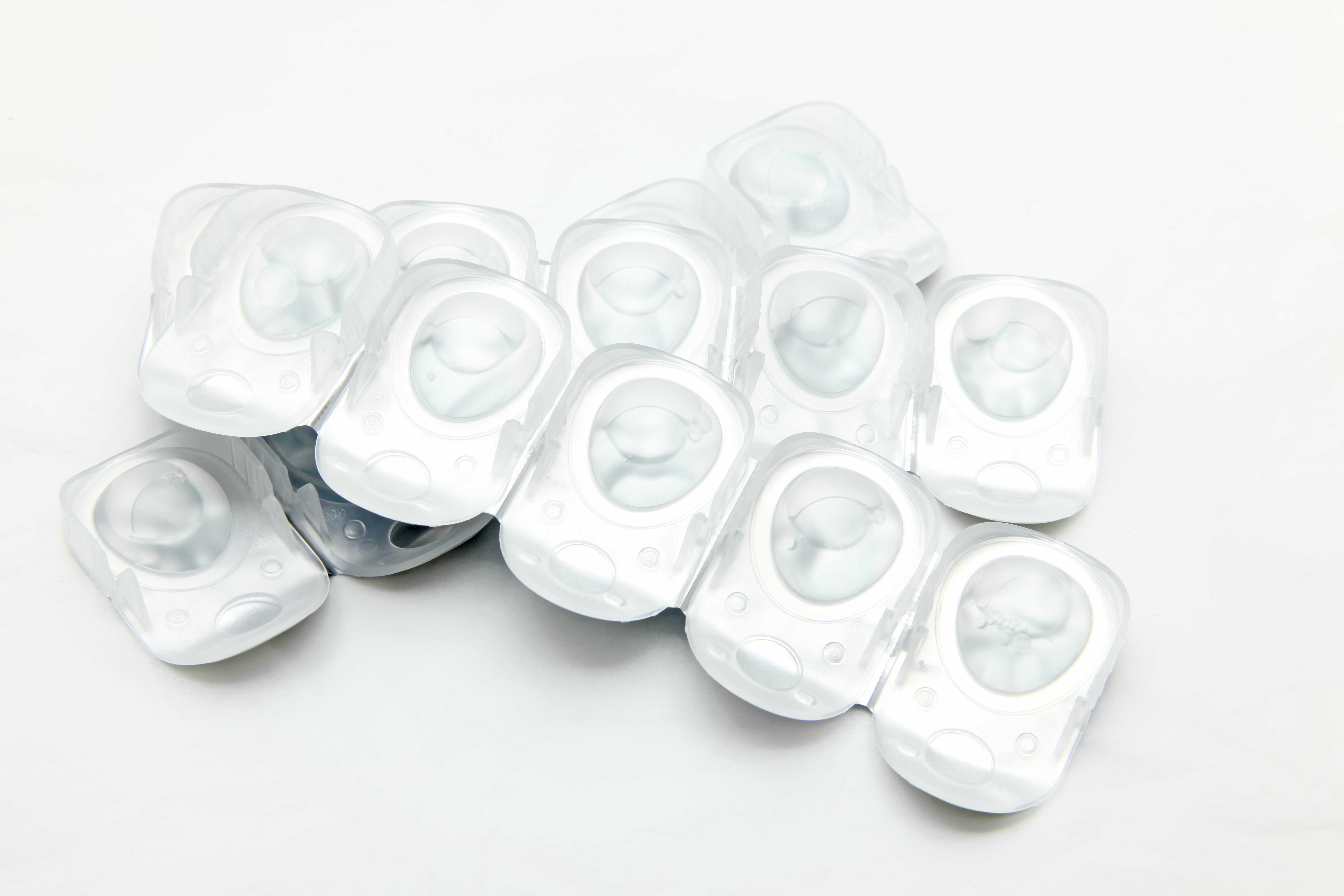Updated on April 30, 2024
What Happens If You Sleep in Contacts?


Vision Center is funded by our readers. We may earn commissions if you purchase something via one of our links.
Key Takeaways
- Nearly 45 million people in the U.S. wear contact lenses, and about one-third have slept in their contacts at least once.6
- If you fall asleep with your contacts, you may only wake up with dry, irritated eyes. However, the consequences can be much worse.
- Sleeping with contacts makes you 6 to 8 times more likely to get an eye infection.6
- If you accidentally fall asleep in your contacts, carefully remove them and wear glasses for the next day.
Where to Buy Glasses + Contacts
Best Overall: Warby Parker
Fastest Delivery: EyeBuyDirect
Also Great: Liingo
Best Place to Buy Contacts: Discount Contacts
Why You Shouldn’t Sleep in Your Contact Lenses
Sleeping or napping in your contact lenses dramatically increases the risk of eye infection, especially microbial keratitis. This eye condition affects the cornea (the lens on the front surface of your eye, directly beneath your contact).
Bacteria usually cause microbial keratitis but can also be fungal, viral, or parasitic. Without treatment, microbial keratitis can lead to permanent vision loss.

Even if you sleep in your contacts occasionally or by accident, your risk for infection still increases. Many ophthalmologists advise against contact lenses marketed for continuous wear because they also raise the risk of a severe eye infection.2
Non-prescription contact lenses can also result in serious eye problems and lead to a corneal transplant. If you wear these overnight, the risk increases. Speaking with an eye doctor before using this type of lens is essential.
What Happens When You Sleep in Contacts?
When you sleep with contact lenses, your eyes can’t breathe properly. Without sufficient oxygen, cells in the cornea go into a state of oxygen deprivation called hypoxia.
Low oxygen levels promote bacterial growth, increasing the risk of infections leading to corneal damage and vision loss. These include:
Bacterial Keratitis
This is the most common type of keratitis. It involves corneal inflammation caused by a bacterial infection. Bacterial keratitis can occur when bacteria from your fingers, contact lens, or storage case enter your eye.
Wearing contacts overnight increases your risk for bacterial keratitis. Rinsing your lenses in tap water instead of contact solution raises your risk.
Fungal Keratitis
A fungal infection causes this type and is more common in tropical climates. However, fungal keratitis can happen to people anywhere in the world.
Signs and Symptoms of an Eye Infection
Here is a list of symptoms associated with contact lens-related corneal infections:
- Blurry vision
- Unusual redness of the eye
- Swelling
- Eye pain or discomfort
- Itchy eyes or a burning sensation
- Excessive tearing
- Eye discharge
- Extra sensitivity to light
- A feeling of something in the eye
Call your eye doctor at the first signs of infection. Left untreated, keratitis can lead to permanent corneal damage and vision loss.
Other Risks of Sleeping with Contacts
Microbial keratitis isn’t the only problem to worry about. Sleeping in contact lenses also increases your risk for:
- Conjunctivitis (pink eye)
- Corneal ulcers
- Corneal hypoxia
- Dry eyes
- Red eyes
- Eye irritation and inflammation
If you fall asleep with debris stuck beneath a contact lens, you might wake up with a scratched or damaged cornea.
How to Treat Your Eyes After Sleeping in Contacts
If you fall asleep with your contact lenses still in, there are a couple of steps you should take immediately afterward:
Remove Contact Lenses
Take out your contacts as soon as possible. Doing this will lessen your risk of infection and further eye dryness.
If you find it difficult, place several drops of contact lens rewetting drops in your eyes and blink. This should help dislodge the lenses for easier removal.
You want to remember not to pull at the contact lenses. This tugging motion could cause abrasions to the surface of your eye.
Wear Eyeglasses for at Least a Day
Hold off on wearing contact lenses for one whole day. You want to rest your eyes and let them breathe again.
Also, be on the lookout for any possible infection symptoms. If you notice something strange, contact your ophthalmologist or optometrist.
Schedule an Eye Exam if Needed
Regarding eye infections, it’s better to be extra cautious. Call your eye doctor immediately if you experience any changes to your vision or signs of infection.
If you schedule an appointment, bring your contact lenses in their storage case. Your eye doctor can culture the lens to understand and treat the source of your eye problem.
Prevent Accidentally Sleeping in Your Contacts
People who accidentally fall asleep with their contacts may benefit from setting an alarm or other reminder to remove them.
What Contacts are Approved for Sleeping?
The United States Food and Drug Administration (FDA) has approved different contact lenses for day and overnight wear. These include:
Extended Wear
Continuous use or extended wear contacts claim to be safe to wear overnight from one to six nights or up to 30 days. However, many eye doctors recommend against this. The risk of microbial keratitis is higher in people who use extended-wear lenses.
Because these lenses are made of flexible silicone hydrogel plastics, more oxygen can reach the cornea. You’ll see that most extended-wear contact lenses are often soft contact lenses.
Only a few rigid gas permeable (RGP) lenses are available and suitable for overnight wear. After each scheduled removal of these contact lenses, eye care professionals recommend resting your eyes for at least one day and wearing eyeglasses.
Overnight Orthokeratology (Ortho-k) Lenses
Ortho-k contact lenses help change the curvature of the cornea. In doing so, the eye can focus on objects better. Eye care professionals often prescribe this contact lens for people with myopia (nearsightedness).
If you use Ortho-k lenses, you may be recommended to sleep with them for at least 8 hours per night. Ortho-k lenses are removed in the morning, and the wearer can enjoy clearer vision throughout the day without glasses or contacts.
In this article
6 sources cited
Updated on April 30, 2024
Updated on April 30, 2024
About Our Contributors
Lauren, with a bachelor's degree in biopsychology from The College of New Jersey and public health coursework from Princeton University, is an experienced medical writer passionate about eye health. Her writing is characterized by clarity and engagement, aiming to make complex medical topics accessible to all. When not writing, Lauren dedicates her time to running a small farm with her husband and their four dogs.
Dr. Melody Huang is an optometrist and freelance health writer with a passion for educating people about eye health. With her unique blend of clinical expertise and writing skills, Dr. Huang seeks to guide individuals towards healthier and happier lives. Her interests extend to Eastern medicine and integrative healthcare approaches. Outside of work, she enjoys exploring new skincare products, experimenting with food recipes, and spending time with her adopted cats.






